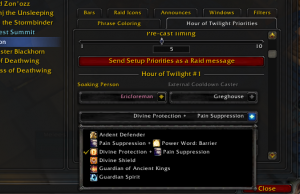

According to YouTube's Chief Product Officer (see Solsman, 2018), 70% of the views on YouTube result from recommendations by the YouTube algorithm.

This will be the topic of section 2.Īn important feature of YouTube is the central role played by its recommendation algorithm, which suggests home page videos, lists videos to watch next, and responds to YouTube search queries. To understand today's science communication, it thus seems critical to have at least an overview of the science communication produced and shared on YouTube. Through repeated exposure (see Zajonc and Rajecki, 1969 Kahneman, 2011 Kramer et al., 2014 Jackson, 2019), a vast fraction of the population seems greatly under the influence of what YouTube exposes them to on a daily basis ( Lewis, 2018). According to Lewis (2020), this adds up to more daily views on YouTube (6.8 billion views) than searches on Google (5.9 billion queries). YouTube claims 2 to have 2 billion users, each with an average of 30 min of daily watch time. According to a survey by Shearer and Gottfried (2017), around two Americans out of three report that “they get at least some of their news on social medias.” In this paper, we will focus on the particular case of YouTube mostly because of its scale. The diffusion of information is currently undergoing a major shift with the rise of online platforms. In this context, quality science communication 1 has arguably become critical for the future of humanity. (2020) fit a model that “reproduces the recent explosive growth in anti-vaccination views and predicts that these views will dominate in a decade.” The rise of misinformation, or simply the lack of quality information, seems to be a major risk factor for our societies in addition to numerous other social-media-related issues, such as online polarization ( Tucker et al., 2018), anger pandemics ( Berger and Milkman, 2012 Fan et al., 2014), and loneliness ( Hunt et al., 2018) to name a few.

Despite this, some views opposing the scientific consensus are proliferating at a concerning rate, and this includes various critical topics such as climate change ( Allgaier, 2019), cancer ( Loeb et al., 2019), and vaccination ( Donzelli et al., 2018). Our societies arguably face challenges of increasing complexity, from pandemic mitigation to climate change, social inequalities, and mass surveillance. The COVID-19 pandemic is surely testing the importance of science communicators and, in many cases, the lack thereof ( Yong, 2020). Known for their legendary energetic stage performance, including but limited to fluorescent clothing, chili costumes, gerard’s famous ‘granny pants’, terrible jokes, spin kicks, splits, putting pinch harmonics in everything, ninja costumes, and accidental and totally unplanned synchronized head banging – Vox was also able to command the crowd in a manner not seen for many years in the local rock scene.“Without our science communicators to publicly inform, explain, teach, decode, counter misinformation, and debate science matters many would remain in a space where they don't have information they need, leading to poor choices being made at really crucial times,” New Zealand Prime Minister Jacinda Arden asserted in July 2020 ( LeBard, 2020). The band managed to build a significant following partly due to never taking themselves too seriously in an era when many bands were attempting to be as ‘metal’ as possible. After years of attempting to define their genre of music, Vox Deus settled on inventing their own genre of music called Manicore which is equal parts Manicou and Metalcore. With influences from death to progressive, nu-metal to soca, Vox Deus managed to craft a unique sound which often left most local rock fans referring to the band as the ‘local system of a down’. Vox Deus was one of Trinidad’s top metal acts that continued to push the boundaries of what was considered ‘metal’ in the Trinidad rock scene from 2005-2012.


 0 kommentar(er)
0 kommentar(er)
